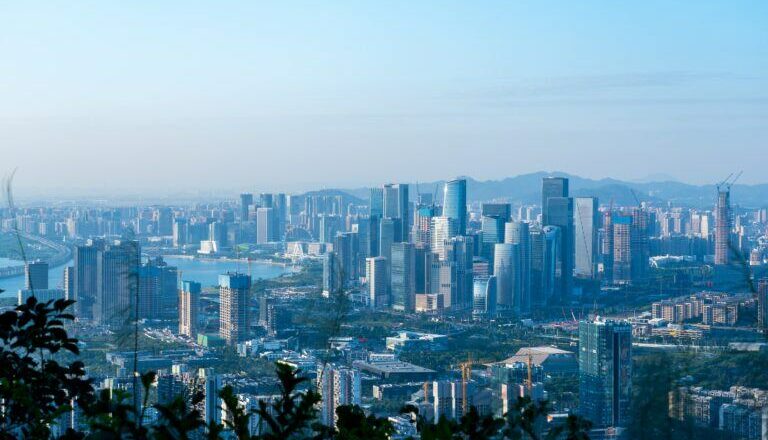China’s Property Market Collapse Threatens Global Economy
China’s real estate conundrum has heightened global economic anxieties, with recent surveys indicating its position as a top credit risk to the global economy. Evergrande’s 2021 turmoil, though anticipated, paved the way for newer concerns – Country Garden’s surprising stumble.
According to a recent survey from Bank of America, the ratio of respondents worried about China’s property sector more than doubled to 33% in September from the previous month. When Evergrande, a Chinese real estate giant, defaulted on its debt the move was relatively expected, as the firm has been dealing with a crisis for over a decade.
China’s Potential Domino Effect
This year, however, real estate giant Country Garden, a property giant seen as a more respectable player, started facing challenges amid an overarching issue of housing oversupply and waning speculative buying, which has been partly fueling the market’s growth.
The firm, according to Reuters, is facing a liquidity test as a $500 million, 6.15% bond maturing in September 2025 saw the firm barely able to pay $15 million in interest linked to the bond earlier this month. In August, the developers missed $22.5 million in coupon payments tied to two bonds, but managed to send them to bondholders before a grace period ended.
Authorities in the country have rolled out numerous measures to support China’s real estate market, which led to a brief resurgence in activity as property agents handled a spike in transactions. That activity rally, however, is now fading according to Bloomberg.
The stimulus had the strongest impact in Beijing, but it did not last long. The number of existing homes sold in the city dropped from 2,600 to 1,700 units in a week, a 35% decrease, according to a leading property agency in China.
New homes sold by developers also followed a similar trend. Moody’s Investors Service lowered its outlook on the sector to negative, expecting contracted sales to decline by 5% in the next six to 12 months, partly because of the Country Garden crisis.
Simultaneously, China’s economic landscape shows cracks. Major cities see plummeting wages, with significant drops in Beijing and Shanghai. A tech sector in crisis, dwindling hiring rates, and a youth unemployment surge underscore China’s economic challenges.
The economy is facing a slowdown due to the weak property market, falling exports, and low consumer spending. The government had aimed to achieve a growth rate of around 5% this year but economists have lowered their expectations for GDP growth as the government is reluctant to implement large-scale stimulus like in previous downturns to avoid more debt accumulation.
The Bigger Picture of China’s Property Crisis
China’s property troubles may not just be domestic concerns and could have ramifications for the international economic landscape. The country is intricately linked with global financial systems. International banks, institutional investors, and multinational corporations could all have significant exposures to China’s real estate sector, either directly through investments or indirectly through intertwined supply chains.
When Evergrande teetered on the brink of default, international markets felt tremors, not just from fears of the company’s failure, but from the prospect of a cascading effect impacting others.
If one of these giants stumbles, the reverberations could be felt in global credit markets, potentially leading to tightened lending standards or reduced liquidity. This could exacerbate the ongoing global supply chain issues, raising costs for businesses worldwide.
Moreover, foreign investors hold a significant amount of Chinese corporate bonds. A default or a series of defaults from major players in China’s real estate could result in considerable losses. These defaults could also influence markets that benefit from China’s property giants, including raw materials markets.
Meanwhile, on the global stage, US President Joe Biden speculates China’s economic strains might deter aggressive actions toward Taiwan.
Featured image via Unsplash.
Source: Read Full Article

